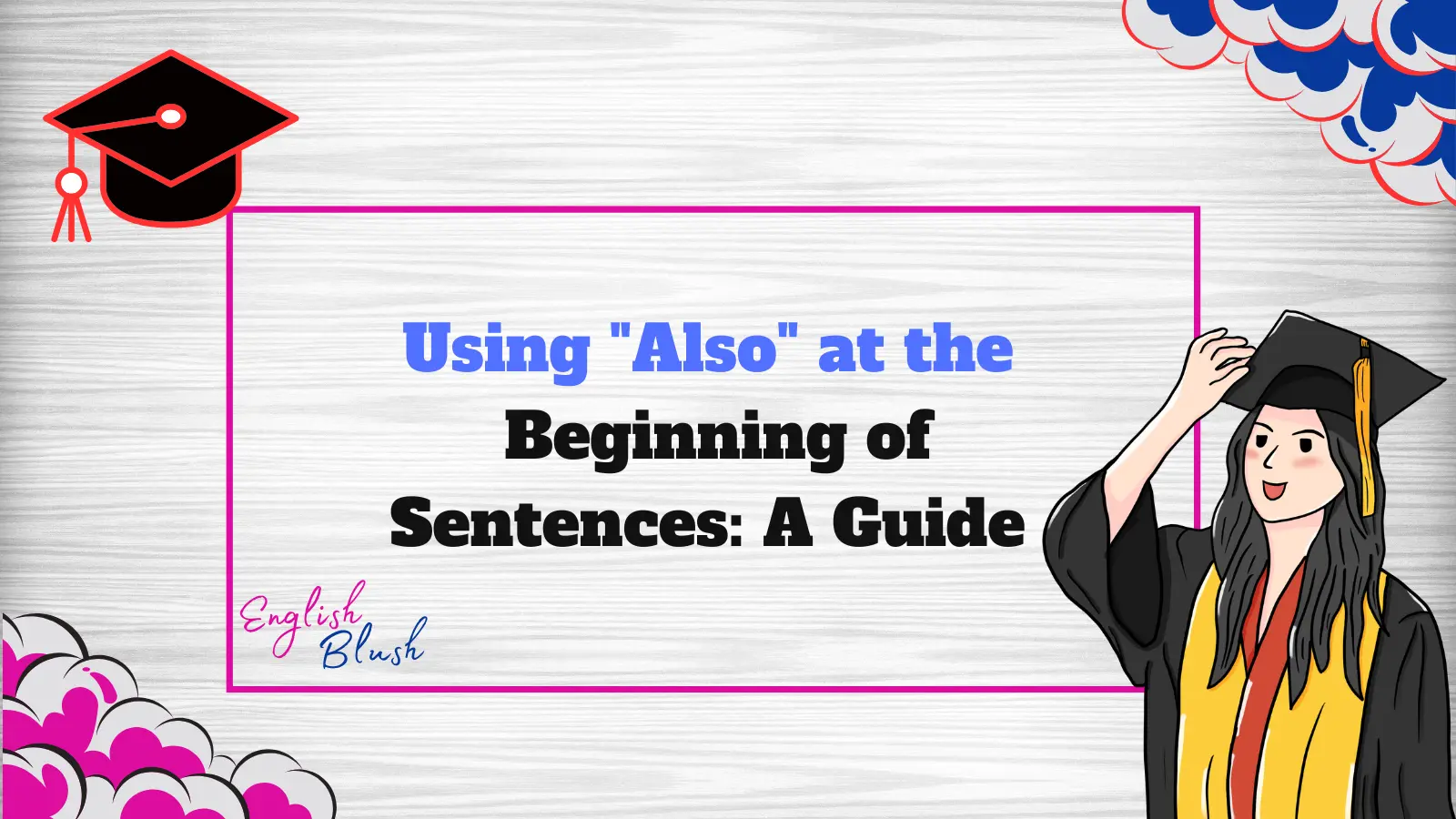The word “also” is common in English and helps us add information. But is it okay to start a sentence with it? This article will answer that question, give tips, and show examples. We’ll also talk about when to use “also” in formal and informal writing, and suggest alternatives.
Can You Start a Sentence with “Also
Yes, you can start a sentence with “also”! It’s a great way to connect ideas and add emphasis. But, you need to know when it works and when it doesn’t, especially in formal writing.
When to Use “Also” at the Start of a Sentence
Using “also” at the beginning of a sentence makes your writing feel smooth and connected. It’s common in informal writing, such as:
- Emails
- Blogs
- Social media posts
In these cases, starting a sentence with “also” adds a casual, conversational tone.
For example:
- “I love coffee. Also, tea is a great way to relax.”
In formal writing, you can use “also” at the start for emphasis. However, it’s best to use it sparingly to maintain a professional tone.
Examples in Formal Writing
- “The study revealed an increase in sales. Also, customer satisfaction improved.”
- “These methods are effective. Also, they are cost-efficient.”
Here, “also” highlights additional points without breaking the flow.
Common Mistakes to Avoid
1. Overusing “Also”
Starting too many sentences with “also” can make your writing repetitive. Use it only when it adds value or clarity.
Example of overuse:
- “We need to finish the report. Also, we must prepare for the meeting. Also, don’t forget the presentation.”
Better version:
- “We need to finish the report and prepare for the meeting. Don’t forget the presentation, either.”
2. Misplacing “Also”
If “also” is used incorrectly, the sentence can feel awkward or confusing.
Incorrect:
- “She is also, talented in art.”
Correct:
- “She is also talented in art.”
Or, if starting a sentence:
- “She excels in math. Also, she’s talented in art.”
Alternatives to “Also”
Using different words can make your writing more varied and engaging. Here are some alternatives to “also” for different contexts:
1. Formal Alternatives
- Furthermore
- Moreover
- Additionally
Example:
- “The team completed the project. Furthermore, they received recognition for their effort.”
2. Informal Alternatives
- Plus
- On top of that
- What’s more
Example:
- “I enjoyed the movie. Plus, the popcorn was amazing!”
Tips for Writing with “Also”
1. Know Your Audience
In casual writing, “also” is fine at the start of sentences. But for professional emails or reports, consider more formal alternatives like “Furthermore.”
2. Read It Out Loud
When you write, read your sentence out loud. If starting with “also” feels natural, it’s probably fine. If it feels awkward, try a different structure.
More Examples in Contex
Informal:
- “I’m excited about the trip. Also, I heard the weather will be great!”
- “This new book is fantastic. Also, the author is releasing a sequel soon.”
Formal:
- “The data confirms our hypothesis. Also, it highlights key growth areas.”
- “This decision benefits employees. Also, it reduces costs.”
When Not to Use “Also”
Avoid starting a sentence with “also” if:
- It makes the sentence unclear.
- You’ve already used it several times in your writing.
- A stronger alternative fits better.
Example:
Instead of:
- “Also, we need better communication between teams.”
Try:
- “Improved communication between teams is also necessary.”
Final Thoughts
Starting a sentence with “also” is fine in both formal and informal writing, but you need to know your audience. Keep your sentences clear, avoid overuse, and try alternatives when needed.
By following these tips, you can use “also” effectively to make your writing smooth and engaging.





